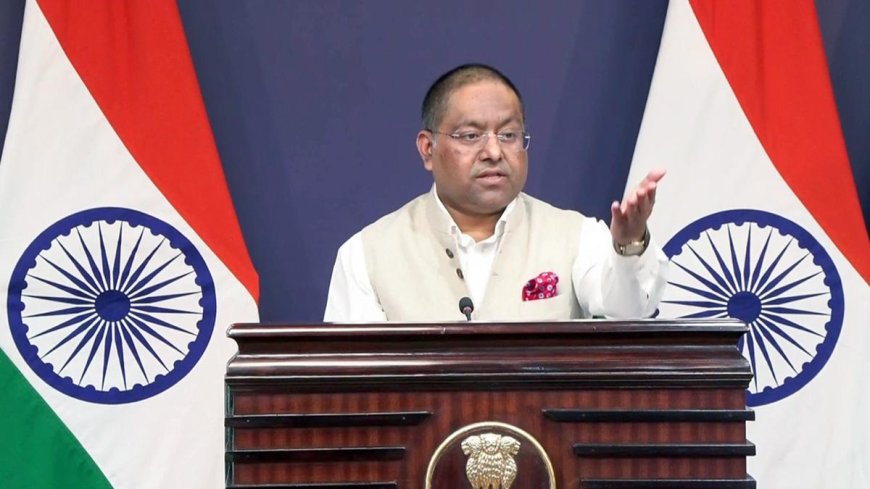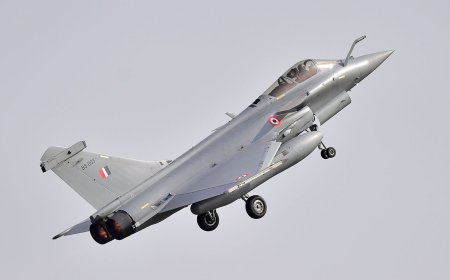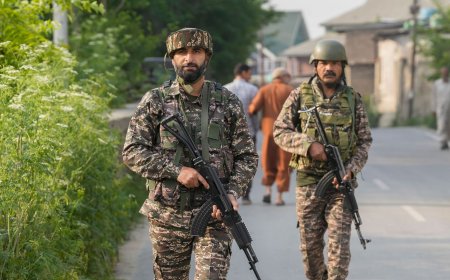India Dismisses China’s Renaming of Arunachal Locations as ‘Preposterous’
India rejects China’s latest attempt to rename places in Arunachal Pradesh, calling it a baseless and preposterous move. The MEA reaffirms Arunachal’s status as an integral part of India.

🇮🇳 India Rejects China’s ‘Preposterous’ Attempts to Rename Places in Arunachal Pradesh: Strong Diplomatic Message Sent to Beijing
New Delhi, May 14, 2025 — The Ministry of External Affairs (MEA) of India has categorically rejected China’s latest attempt to rename places within the Indian state of Arunachal Pradesh, calling the move “preposterous,” “unilateral,” and “politically absurd.” This marks yet another diplomatic flashpoint between the two Asian giants in their long-standing boundary dispute over the northeastern frontier, especially as Beijing intensified its narrative by releasing a new set of standardized geographical names in Chinese, Tibetan, and Pinyin scripts.
In a swift and unambiguous rebuttal, India stated that assigning invented names to locations in Arunachal Pradesh does not alter the reality that the state remains an integral and inalienable part of India.
The Provocation: China Releases 'New' List of Renamed Places
On May 13, 2025, China’s Ministry of Civil Affairs published its fifth list of renamed locations in "Zangnan" (China’s name for Arunachal Pradesh). The list reportedly includes names for natural features like rivers and mountains as well as administrative regions, marking the most comprehensive renaming effort to date.
This is not the first time China has attempted such symbolic provocations. Similar lists were released in 2017, 2021, 2023, and 2024. But this time, the intensity and frequency of these moves have raised red flags in New Delhi, particularly amid rising regional tensions and Beijing's aggressive assertion of territorial claims in the South China Sea and Taiwan Strait.
India Responds Firmly: ‘Assigning Invented Names Changes Nothing’
In a statement released late Tuesday evening, MEA spokesperson Randhir Jaiswal said:
"We have seen such attempts by China in the past. Assigning invented names will not alter the reality. Arunachal Pradesh has always been and will always be an integral part of India. This repeated exercise by China holds no validity or legal standing."
The Indian government further clarified that the people of Arunachal Pradesh, its democratically elected government, and its cultural fabric are inseparable from India’s national identity. Any attempts to undermine this, either by renaming places or spreading disinformation, are doomed to fail.
International Backing: U.S. and Allies Echo India’s Position
India’s stand against Beijing's cartographic aggression has received significant support from major global powers. In recent statements, the United States, France, and Australia reiterated their recognition of Arunachal Pradesh as part of India. The U.S. State Department even went on record stating:
“We strongly oppose any unilateral attempts to advance territorial claims by changing names, altering maps, or spreading misinformation. Arunachal Pradesh is Indian territory.”
This diplomatic backing comes amid broader geopolitical realignments, where India is increasingly seen as a counterweight to China in the Indo-Pacific region.
A Flashpoint in the Making: Why Arunachal Matters So Much
Arunachal Pradesh shares a 1,129 km border with China along what is called the Line of Actual Control (LAC). China has long claimed the entire state as part of South Tibet, a claim India has consistently and firmly rejected.
The strategic importance of Arunachal cannot be overstated:
-
Tawang, a major district in Arunachal, holds religious significance in Tibetan Buddhism.
-
The region is home to critical Indian military installations and forms a strategic buffer zone in case of escalations.
-
It is vital for India’s hydrological control over Brahmaputra tributaries.
This is precisely why Beijing’s symbolic renaming effort is viewed as more than just a cartographic stunt — it is seen as part of a broader “salami-slicing” strategy to assert territorial claims inch by inch.
Ground Realities: Infrastructure and Development in Arunachal
While China continues to rename places, India is building realities on the ground. Over the past few years, there has been a massive push for infrastructure development in the northeastern state, including:
-
New highways and border roads
-
Tunnels like the Sela Tunnel for all-weather connectivity
-
Advanced landing grounds for Indian Air Force
-
Upgradation of civilian airports and healthcare facilities
These developments not only strengthen India's strategic preparedness but also solidify civilizational and democratic integration with the region.
Historical Context: The Shadow of 1962 and the Road Since
The India-China war of 1962 saw Chinese forces temporarily occupy parts of Arunachal Pradesh, only to withdraw unilaterally later. Since then, the boundary has remained disputed, with talks spanning 26 rounds yielding little substantial progress.
The Doklam standoff in 2017, Galwan clash in 2020, and ongoing military build-up on both sides have kept the LAC under persistent tension. China's naming tactics are viewed as part of psychological warfare, trying to lay the groundwork for future legal or military claims.
Voices from the Ground: Arunachal Reacts
The people of Arunachal Pradesh have reacted with both anger and pride. Several local leaders, including Chief Minister Pema Khandu, slammed China’s attempts:
“We are proud Indians. No amount of renaming can change our identity, history, or geography. Arunachal Pradesh is India — always has been, always will be.”
Social media across the Northeast has been abuzz with trending hashtags like #ArunachalIsIndia, #StopChinaAggression, and #WeStandWithArunachal. Citizens have taken to platforms to share stories, pictures, and videos reinforcing the deep-rooted Indian identity of the state.
China's Strategy: Symbolism Over Substance?
According to global analysts, China’s approach is highly symbolic but lacks practical utility. Renaming territories without actual presence, legal authority, or international recognition does little except provoke tensions.
Beijing may be trying to build a parallel narrative for its domestic audience, projecting strength in border matters as economic challenges and political unrest mount at home.
It may also be attempting to test global reactions, gauging the resolve of India and its allies, especially ahead of upcoming strategic dialogues like the India-US 2+2 talks and the BRICS summit.
Expert Opinions: What Geopolitical Analysts Say
Dr. Brahma Chellaney, Strategic Affairs Expert:
“This is classic Chinese grey-zone warfare — not quite war, not quite diplomacy, but persistent pressure tactics. India must not just reject these moves but aggressively counter them with proactive narratives.”
Aparna Pande, Hudson Institute:
“The renaming is part of China's toolkit to rewrite history. Internationalizing Arunachal’s status with allied support is key to neutralizing Beijing’s distortions.”
Lt. Gen. Satish Dua (Retd), Former GOC, Northern Command:
“India is no longer the hesitant power it once was. Our military posture, infrastructure build-up, and political resolve have never been stronger.”
What Lies Ahead?
India’s rejection of China’s name-game sends a clear geopolitical message: it will not tolerate any undermining of its sovereignty — diplomatically, militarily, or psychologically.
With elections in Taiwan looming, tensions in the South China Sea, and China's economic slowdown continuing, Beijing’s distractions may only intensify. Arunachal Pradesh, however, is not just a boundary dispute — it’s a national red line for India.
Key Takeaways
| Point | Details |
|---|---|
| India’s Position | Arunachal is and will remain an integral part of India |
| China’s Move | Attempted symbolic renaming of Indian territory |
| International Response | Strong support for India from U.S., France, Australia |
| Strategic Stakes | Arunachal is critical for India’s security and identity |
| Public Sentiment | Unified, assertive national and regional response |
China’s renaming exercise is a desperate and outdated playbook. In today’s interconnected and informed world, maps, names, and borders cannot be rewritten at will. India’s strong and swift rebuttal, backed by international solidarity and ground-level development in Arunachal Pradesh, sends a resounding message:
Territorial integrity isn’t a matter of negotiation — it’s a matter of national identity.
And India has made it abundantly clear — Arunachal Pradesh is India. Always was. Always will be.
What's Your Reaction?
 Like
0
Like
0
 Dislike
0
Dislike
0
 Love
0
Love
0
 Funny
0
Funny
0
 Angry
0
Angry
0
 Sad
0
Sad
0
 Wow
0
Wow
0












































































